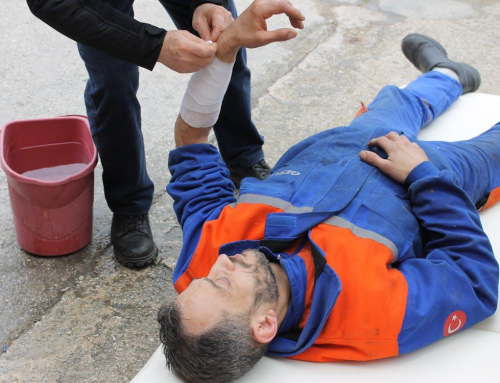Maintaining your Occupational First Aid (OFA) Level 3 Pro certification is crucial for workplace safety and regulatory compliance in British Columbia. This guide provides a comprehensive overview of the renewal process, ensuring you understand the requirements, procedures, and timelines involved.
Understanding The Importance Of Certification Renewal
Renewing your Occupational First Aid Level 3 Pro certification is not only a regulatory obligation but also a commitment to workplace safety and readiness. In British Columbia, workplaces situated more than 20 minutes away from medical facilities are required to have trained first aid attendants with OFA 3 certification. This level of training goes beyond basic first aid, providing skills to manage critical medical situations until professional help arrives.
Renewing your OFA Level 3 Pro certification is essential to maintain proficiency in advanced first aid techniques and stay compliant with safety standards. It ensures:
Skill Proficiency: Regular renewal updates your knowledge and skills, ensuring you can effectively respond to emergencies.
Regulatory Compliance: Many workplaces mandate current certifications to comply with safety regulations.
Career Advancement: Current certifications enhance your professional credibility and job prospects.
Renewal Requirements:
Renewing your OFA 3 certification involves meeting specific criteria established by WorkSafeBC. Typically, certifications are valid for three years, after which renewal is necessary. The process ensures that first aid attendants maintain current knowledge and skills relevant to their roles. Requirements may include completing a refresher course and passing both written and practical assessments.
Current Certification: Your OFA Level 3 certification must be valid. If it expires, you may need to retake the full course.
Proof of Experience: Some providers require evidence of relevant work experience.
Refresher Course: Completion of an OFA Level 3 refresher course is mandatory. This course updates protocols, provides hands-on practice, and includes assessments.
Physical Fitness: You must be physically capable of performing first aid duties.
The Renewal Process:
Initiating the renewal process begins with identifying the expiry date of your current certification. It is advisable to commence renewal in advance to avoid any lapses, which could compromise workplace safety compliance.
Step 1: Verify Certification Expiry Date Identify the expiration date of your current certification. Start the renewal process several months ahead to avoid any lapses. Early preparation helps you navigate any unforeseen delays, ensuring your certification remains valid and compliant with regulatory requirements.
Step 2: Register for a Refresher Course Choose a recognized provider that offers the OFA Level 3 refresher course. Ensure the course is accredited by WorkSafeBC and aligns with your schedule. Early registration provides a broader selection of dates and secures your place in the class. Research different providers to find the best fit for your learning needs.
Step 3: Attend the Refresher Course Participate in the refresher course, which usually lasts two to three days, and covers both theoretical knowledge and practical skills. The course includes advanced first-aid techniques and scenario-based training. Engage actively in the sessions, ask questions, and practice diligently to reinforce your skills and knowledge.
Step 4: Successfully Complete Assessments Pass the written and practical assessments to demonstrate your competency in emergency response. These assessments evaluate your ability to apply what you’ve learned in real-world situations. Thorough preparation, including reviewing course materials and practicing regularly, will help you succeed. Seek feedback from instructors to identify and improve on weak areas.
Step 5: Obtain Your Certification Upon successful completion of the course and assessments, receive your renewed OFA Level 3 Pro certification. Make a note of the new expiry date for future renewals. Store your certification safely and update your professional records accordingly. Staying on top of your certification status showcases your dedication to workplace safety and readiness.
Key Topics Covered In The Refresher Course:

Advanced Life Support: This section covers techniques for managing critical conditions such as cardiac arrest and trauma. You will learn about advanced airway management, intravenous therapy, and the use of life-saving medications. The focus is on providing comprehensive care during complex medical emergencies until advanced medical personnel arrive.
Patient Assessment: This involves a detailed approach to evaluating patients, and identifying, and prioritizing injuries. You’ll be trained in conducting primary and secondary surveys, monitoring vital signs, and recognizing life-threatening conditions. Practical scenarios will help you develop accuracy and efficiency in your assessments.
Airway Management: Ensuring that airways remain clear and that patients receive proper ventilation is crucial. You will learn techniques such as inserting oropharyngeal and nasopharyngeal airways, suctioning, and using bag-valve-mask devices. These skills are essential for maintaining oxygenation in unconscious or critically ill patients.
CPR and AED: The course provides training on the latest protocols for cardiopulmonary resuscitation and the use of automated external defibrillators.
Wound Care: You will learn techniques for treating severe wounds and controlling bleeding, including the use of pressure dressings and tourniquets. This section also covers the management of open fractures, recognizing signs of wound infection, and proper wound cleaning and dressing techniques to promote healing and prevent complications.
Spinal Immobilization: This part of the course teaches methods for safely immobilizing patients with suspected spinal injuries. You will practice using cervical collars, spinal boards, and other immobilization devices to minimize movement and protect the spinal cord during transport, ensuring the safe handling of patients with potential spinal injuries.
Deadlines And Timing
Adhering to deadlines is crucial to ensure continuous compliance with workplace safety regulations. WorkSafeBC mandates that first aid certifications remain valid at all times. Being aware of your certification’s expiry date and planning accordingly minimizes disruptions to workplace operations and safety protocols.
Renewing your OFA Level 3 Pro certification offers numerous benefits:
Enhanced Skills: By renewing your OFA Level 3 Pro certification, you stay updated with current first aid practices, ensuring you are knowledgeable about the latest techniques and protocols. This helps improve your ability to provide high-quality care in emergency situations, making you a valuable asset to your workplace.
Career Opportunities: Keeping your certification current can improve job prospects, as many employers prioritize candidates with up-to-date certifications. It demonstrates your commitment to professional development and workplace safety, potentially opening doors to new job opportunities, promotions, and higher pay.
Compliance: Compliance avoids potential fines, and legal issues and fosters a culture of safety and responsibility within the workplace.
Confidence: Renewing your OFA Level 3 Pro certification boosts your confidence in handling medical emergencies effectively. This assurance is crucial for your own peace of mind and for the well-being of your colleagues, who rely on your expertise during critical moments.
Additional Safety Training Courses
Consider expanding your skills with additional training courses tailored to different workplace hazards:
First Aid Level 2: Ideal for moderate-risk workplaces, this course provides advanced first aid skills beyond basic training. It prepares you to handle a broader range of medical situations and enhances your effectiveness as a first responder.

Confined Space Training: Essential for those working in confined spaces, this training covers hazard recognition, emergency procedures, and the use of safety equipment to ensure safe operations in challenging environments.
Fall Protection: Focuses on fall prevention and the proper use of safety equipment in environments where falls are a risk. This training equips you with the knowledge to identify fall hazards and implement effective safety measures.
CPR and AED Training: Critical for emergency response readiness, this training teaches you life-saving techniques for responding to cardiac emergencies. Knowing CPR and how to use an AED can significantly improve outcomes in medical emergencies
Why Choose Metro Safety Training?
Metro Safety Training, based in Coquitlam, BC since 2008, offers comprehensive safety and first aid training across Vancouver, Burnaby, and Surrey. Our expert instructors and flexible course options ensure high-quality training tailored to your needs.
In today’s dynamic work environments, keeping your certifications current, such as the Occupational First Aid Level 3 Pro (OFA 3), is vital. Whether you operate in Vancouver, Burnaby, or Coquitlam, maintaining this certification ensures you’re equipped to respond effectively to medical emergencies.
Ensure your skills remain sharp and compliant with WorkSafeBC standards. Contact Metro Safety Training today to schedule your renewal course and uphold a safe working environment for all.










